- You are here:
- Home »
- Food Substitutes
- » Best Substitutes For Milk Powder
Best Substitutes For Milk Powder
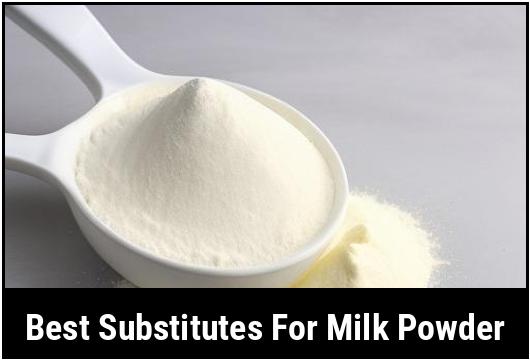
Milk powder is a versatile and convenient ingredient used in various recipes ranging from baked goods to soups and sauces. However, there might be situations where you do not have milk powder on hand or you may be looking for a dairy-free alternative. Luckily, there are several substitutes for milk powder that can help you achieve similar results in your cooking and baking. In this article, we will explore the best substitutes for milk powder, how to choose the right one, and how to use them in your recipes.
Key Takeaways
- Milk powder is a common ingredient used in cooking and baking.
- There are several substitutes for milk powder that can be used in recipes.
- The choice of substitute depends on the desired texture and flavor of the final dish.
- Some substitutes for milk powder include powdered coconut milk, almond flour, and soy powder.
- It is important to follow the recipe instructions and adjust the liquid content when using substitutes for milk powder.
Why You Need A Substitute For Milk Powder
There are a few reasons why you might need a substitute for milk powder. First, you may be following a dairy-free or vegan diet and want to avoid using dairy-based products. Second, you may run out of milk powder and not have time to restock before preparing a recipe. Lastly, you may be intolerant or allergic to milk or lactose, and need to find an alternative that won’t cause any discomfort.
Types Of Substitutes For Milk Powder
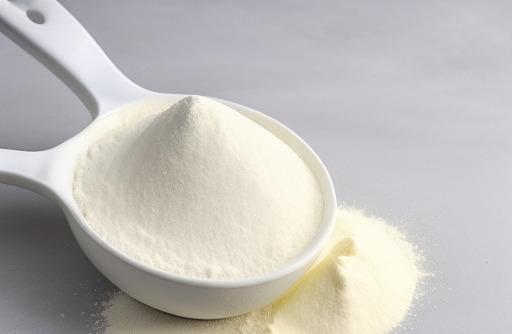
There are several types of substitutes for milk powder that can be used in recipes. These substitutes can vary in terms of texture, flavor, and nutritional content. Here are some common types of substitutes for milk powder:
-
Powdered Coconut Milk: Powdered coconut milk is a popular substitute for milk powder, especially in recipes that call for a creamy and rich texture. It is made from dehydrated coconut milk and can be found in most grocery stores. Powdered coconut milk has a slightly sweet and nutty flavor, which can enhance the taste of dishes like curries, desserts, and smoothies.
-
Almond Flour: Almond flour can be a suitable substitute for milk powder in certain recipes, particularly those that require a nutty flavor. Almond flour is made from finely ground almonds and has a slightly grainy texture. It adds a delicate almond taste to baked goods, making it a great replacement for milk powder in cookies, cakes, and muffins.
-
Soy Powder: Soy powder is another alternative to milk powder that is commonly used in cooking and baking. It is made from dehydrated soy milk and can provide a creamy and slightly nutty flavor to dishes. Soy powder is often used in vegan recipes as a substitute for milk powder or as a protein-rich ingredient in smoothies and shakes.
-
Oat Flour: Oat flour can be used as a substitute for milk powder in recipes that require a slightly thicker and creamier texture. It is made from finely ground oats and has a mild and slightly sweet flavor. Oat flour works well in recipes such as porridge, pancakes, and bread, where a subtle hint of oats is desired.
Best Substitutes For Milk Powder
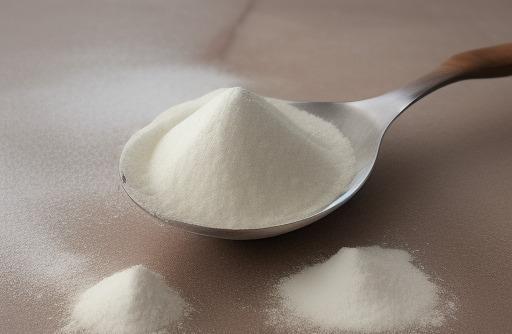
Choosing the best substitute for milk powder depends on the specific recipe and the desired outcome. Here are some of the best substitutes for milk powder, along with their unique qualities and uses:
- Powdered Coconut Milk:
- Creamy and rich texture
- Slightly sweet and nutty flavor
- Suitable for curries, desserts, and smoothies
- Almond Flour:
- Nutty flavor
- Adds a delicate taste to baked goods
- Great for cookies, cakes, and muffins
- Soy Powder:
- Creamy texture
- Slightly nutty flavor
- Suitable for vegan recipes and protein-rich smoothies
- Oat Flour:
- Creamy and thick texture
- Mild and slightly sweet flavor
- Works well in porridge, pancakes, and bread
These substitutes can be used in a 1:1 ratio with milk powder in most recipes. However, it is important to note that the flavor and texture of the final dish may vary slightly when using substitutes.
Choosing The Right Substitute For Milk Powder
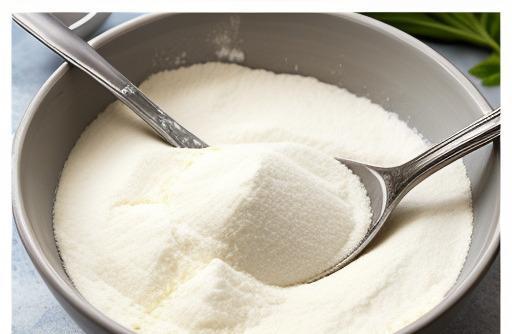
When choosing the right substitute for milk powder, consider the flavor, texture, and intended use of the recipe. Here are some factors to consider:
-
Flavor: Each substitute for milk powder has its own distinct taste. Consider the flavor profile of the substitute and choose the one that complements the other ingredients in your recipe. For example, if you are making a tropical dessert, powdered coconut milk may be the best choice.
-
Texture: The texture of the substitute can affect the overall result of your recipe. If your recipe requires a creamy and thick consistency, opt for substitutes like powdered coconut milk or oat flour. On the other hand, if a lighter texture is desired, almond flour or soy powder may be more suitable.
-
Dietary Restrictions: If you have specific dietary restrictions, such as being lactose intolerant or following a vegan diet, make sure to choose a substitute that aligns with your needs. Powders like almond flour and soy powder are dairy-free options, while powdered coconut milk is suitable for both dairy-free and vegan diets.
-
Availability: Consider the availability of the substitute in your local grocery stores. Some substitutes may be more readily available than others, depending on your location. It is always helpful to plan ahead and stock up on your preferred substitute if it is not easily accessible.
Cooking With Substitutes For Milk Powder
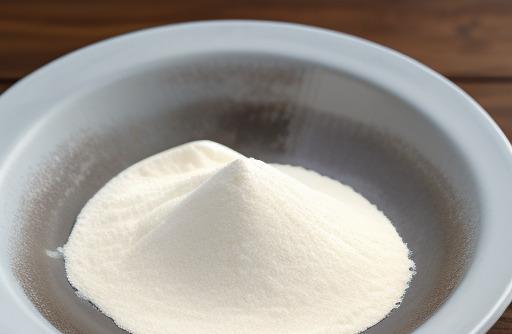
When cooking with substitutes for milk powder, it is important to follow the recipe instructions and make adjustments as needed. Here are a few tips for cooking with substitutes for milk powder:
-
Adjust Liquid Content: When using a substitute for milk powder, you may need to adjust the liquid content of your recipe. Some substitutes, such as almond flour or oat flour, absorb more liquid than milk powder. This means you may need to add a bit more liquid to achieve the desired consistency of the batter or dough.
-
Experiment with Ratios: It may take some trial and error to find the perfect ratio of substitute to liquid in your recipes. Start by replacing the milk powder with the same amount of substitute, and gradually adjust as needed. Keep in mind that the flavor and texture of the final dish may vary slightly from the original recipe.
-
Consider Sweetness: Some substitutes, like powdered coconut milk, may have a slightly sweet taste. Take this into account when adding additional sweeteners to your recipe. You may need to reduce the amount of sugar or other sweeteners to balance the flavors.
-
Blending and Mixing: Certain substitutes, such as powdered coconut milk or almond flour, may require blending or mixing with liquid ingredients to achieve a smooth consistency. Use a blender or whisk to ensure the substitute is fully incorporated into the recipe.
Recipes Using Substitutes For Milk Powder
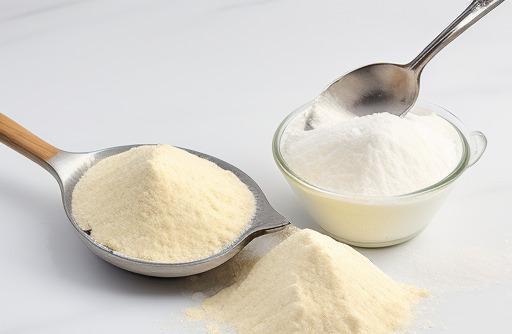
Here are a few recipes that can be made using substitutes for milk powder:
- Coconut Curry:
Ingredients:
- 2 tablespoons powdered coconut milk
- 1 can coconut milk
- 1 onion, finely chopped
- 2 cloves garlic, minced
- 1 tablespoon curry powder
- Assorted vegetables (such as bell peppers, carrots, and peas)
- Protein of choice (such as tofu or chicken)
- Salt and pepper to taste
Instructions:
-
In a large saucepan, heat oil over medium heat. Add onions and garlic, and sauté until translucent.
-
Stir in curry powder and cook for a minute, until fragrant.
-
Add the powdered coconut milk and coconut milk to the saucepan. Stir well to combine.
-
Add the vegetables and protein of choice. Simmer until the vegetables are tender and the protein is cooked through.
-
Season with salt and pepper to taste.
-
Serve the coconut curry over rice or with naan bread.
-
Almond Flour Chocolate Chip Cookies:
Ingredients:
- 1 cup almond flour
- 1/4 cup coconut oil, melted
- 1/4 cup honey or maple syrup
- 1 teaspoon vanilla extract
- 1/2 teaspoon baking soda
- 1/4 teaspoon salt
- 1/2 cup chocolate chips
Instructions:
- Preheat the oven to 350°F (175°C) and line a baking sheet with parchment paper.
- In a medium bowl, combine almond flour, coconut oil, honey or maple syrup, vanilla extract, baking soda, and salt. Mix well until a dough forms.
- Fold in the chocolate chips until evenly distributed throughout the dough.
- Drop tablespoon-sized portions of dough onto the prepared baking sheet, spacing them slightly apart.
- Bake for 10-12 minutes, or until golden brown around the edges.
- Allow the cookies to cool on the baking sheet for a few minutes before transferring them to a wire rack to cool completely.
Storage And Shelf Life Of Substitutes
The storage and shelf life of substitutes for milk powder may vary depending on the type of substitute. Here are some general guidelines:
- Powdered Coconut Milk: Store in an airtight container in a cool, dry place. It can typically last for several months.
- Almond Flour: Store in an airtight container in the refrigerator to maintain freshness. It can last up to six months.
- Soy Powder: Store in an airtight container in a cool, dry place. It can typically last for several months.
- Oat Flour: Store in an airtight container in a cool, dry place. It can last up to six months.
It is important to check the expiration dates and follow the storage instructions provided by the manufacturer to ensure the freshness and quality of the substitutes.
Conclusion
Whether you are following a dairy-free or vegan diet, or simply find yourself without milk powder, there are plenty of substitutes available to meet your needs. Powdered coconut milk, almond flour, soy powder, and oat flour are some of the best substitutes for milk powder, each offering its own unique flavor and texture. By considering the specific requirements of your recipes and making adjustments as needed, you can successfully replace milk powder with a suitable substitute without compromising on taste or quality. So, go ahead and explore the world of substitute options to expand your culinary horizons!
FAQS
What Are Some Good Substitutes For Milk Powder?
Soy milk powder is a popular alternative that can be used in place of regular milk powder. Other substitutes include coconut milk powder, rice milk powder, and almond milk powder.
Can I Use Coconut Milk Powder As A Substitute For Regular Milk Powder?
Yes, coconut milk powder can be used in place of milk powder. It provides a rich, creamy flavor and is perfect for baking and cooking dishes that require milk powder.
What Is The Difference Between Almond Milk Powder And Regular Milk Powder?
Almond milk powder is made from ground almonds and is lactose-free. Regular milk powder is made from cow’s milk and contains lactose. Almond milk powder is also a good source of vitamin E and healthy fats.
Is Rice Milk Powder A Good Substitute For Milk Powder?
Yes, rice milk powder can be used as a substitute for milk powder. It is lactose-free and has a mild, sweet flavor. It is also a good source of B vitamins and magnesium.
Can I Use Soy Milk Powder Instead Of Milk Powder In Baking?
Yes, soy milk powder can be used in place of milk powder in baking. It provides a similar texture and flavor as milk powder and is a great alternative for those who are lactose intolerant or vegan.
Sources
About the Author Jenny
I'm Jenny, a housewife with an unwavering passion for food. My culinary journey began with my grandmother's kitchen, and it's now a full-fledged food blog. I've turned my love for cooking into a creative outlet, sharing recipes and stories with a global community of fellow food enthusiasts. It's proof that being a housewife can also mean pursuing your passions and savoring life's delectable moments.
